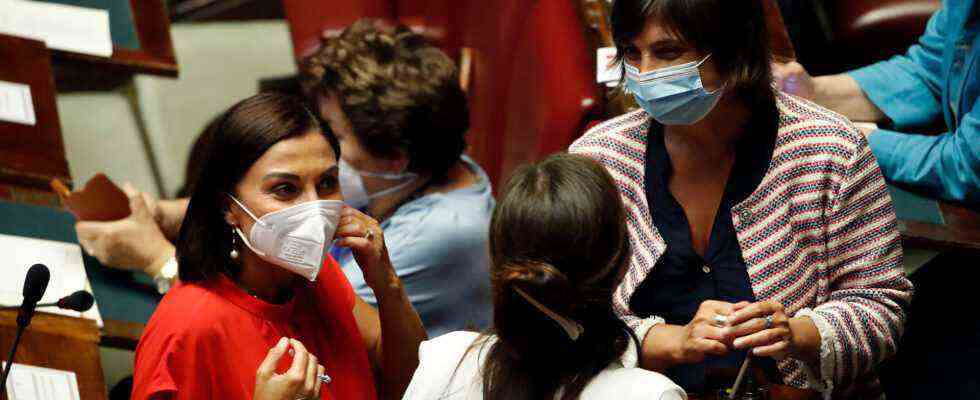Status: 01/21/2022 12:41 p.m
Starting Monday, Italy will vote on President Mattarella’s successor. The contenders include former Prime Minister Berlusconi and Prime Minister Draghi. Women hardly have a chance.
“I was President of the Chamber of Deputies and I was violently attacked by leading politicians, sexist attacks. I was compared to an inflatable doll by Matteo Salvini, or people said on social media: What would you do with Boldrini in the car? Beppe did Grillo done.”
“Sexism and misogyny”
For five years, until 2018, Laura Boldrini headed the Chamber of Deputies, making her the third highest public office in Italy. This did not protect them from attacks below the belt.
“When political leaders do this, it is very serious, because they use sexism and misogyny as a political weapon to weaken, undermine and corner their opponent. And that is tolerated in Italy today,” says Boldrini.
woman at the head of state
La Presidente, as she is still known, sits in her small office in the historic center of Rome. As a member of parliament, the 60-year-old will vote for the future president – or the president. In an appeal, several well-known Italian women had recently called for a woman to finally be at the head of the state.
Dacia Maraini, the grande dame of literature, initiated the petition. “First of all, we wanted to point out once again that there is a right in the constitution that women can also represent the people in this case. But this has never happened. There have been twelve presidents, but never a woman.”
Women’s names circulate
In fact, the names of some women are currently circulating, such as Marta Cartabia. The justice minister in the Draghi cabinet was the first female president of the constitutional court, and the 58-year-old is currently driving reforms of the judicial system. Or Letizia Moratti, once Minister of Education and now Vice President of the regional government in Lombardy. Or Elisabetta Casellati, she heads the Senate.
But they don’t play a really important role in the debate about the candidates, according to Tobias Mörschel, head of the Friedrich Ebert Foundation in Rome. Women have a relatively small presence in top positions in politics.
“Here we are in a structurally conservative country, where we still have a strong influence from the Catholic Church and patterns of thought and behavior that are shaped by it. And a country that is still characterized by a strong machismo, which is definitely stronger than in other countries. So women hit certain glass ceilings more quickly and it’s difficult to really break through the ceiling.”
Tops almost all men
There is actually a women’s quota of 33 percent in parliament, but important posts, such as in the institutions, are mostly held by men – as is the case in the government.
Mörschel explains: “The top positions in key positions are almost all occupied by men. So here at this level, if you just look at the tableau, unfortunately not much has happened in the Draghi government.”
At the same time, the government passed laws designed to promote women, especially in business. Less than half of all Italian women are employed. The Italian central bank calculates that they are needed, they could boost the economic performance of the whole country.
Laws yes – but cultural problem
But politician Boldrini sees real equality between men and women as a long way off: “In Italy we have good laws, but the problem is a cultural one. We’re passing a law against sexual harassment, against sexual violence. But if people’s awareness isn’t changes, laws and criminal law are not enough.”
Of the more than 1,000 eligible voters who choose the President, 34 percent are women. In the group of representatives from the regions, it is just 10 percent.
A woman as President!
Elisabeth Pongratz, ARD Rome, 21.1.2022 11:15 a.m

